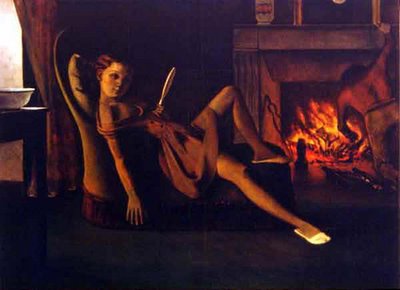En Viena hay diez muchachas,
un hombro donde solloza la muerte
y un bosque de palomas disecadas.
Hay un fragmento de la mañana
en el museo de la escarcha.
Hay un salón con mil ventanas.
¡Ay, ay, ay, ay!
Toma este vals con la boca cerrada.
Este vals, este vals, este vals,
de sí, de muerte y de coñac
que moja su cola en el mar.
Te quiero, te quiero, te quiero,
con la butaca y el libro muerto,
por el melancólico pasillo,
en el oscuro desván del lirio,
en nuestra cama de la luna
y en la danza que sueña la tortuga.
¡Ay, ay, ay, ay!
Toma este vals de quebrada cintura.
En Viena hay cuatro espejos
donde juegan tu boca y los ecos.
Hay una muerte para piano
que pinta de azul a los muchachos.
Hay mendigos por los tejados.
Hay frescas guirnaldas de llanto.
¡Ay, ay, ay, ay!
Toma este vals que se muere en mis brazos.
Porque te quiero, te quiero, amor mío,
en el desván donde juegan los niños,
soñando viejas luces de Hungría
por los rumores de la tarde tibia,
viendo ovejas y lirios de nieve
por el silencio oscuro de tu frente.
¡Ay, ay, ay, ay!
Toma este vals del "Te quiero siempre".
En Viena bailaré contigo
con un disfraz que tenga
cabeza de río.
¡Mira qué orilla tengo de jacintos!
Dejaré mi boca entre tus piernas,
mi alma en fotografías y azucenas,
y en las ondas oscuras de tu andar
quiero, amor mío, amor mío, dejar,
violín y sepulcro, las cintas del vals.





